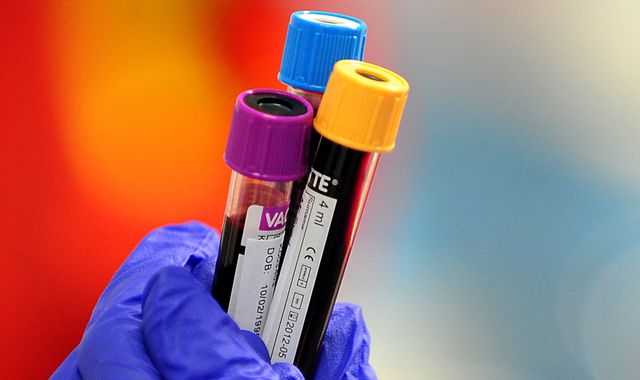Contaminated blood: New papers show senior medics allowed scandal to continue
Written by News on 07/10/2019
Health officials in 1974 allowed people to be infected with contaminated blood, despite knowing it was making people ill, according to meeting minutes released under the Freedom of Information Act.


The minutes of the meeting of senior medical figures from across the UK in Oxford, shows that officials knew that haemophiliacs were being given dangerous blood from the US that was making them ill with hepatitis.
However, no one raised the alarm to stop the spread of the blood and instead, officials hoped the imported goods would not get a “bad name”.
This meant that batches of the contaminated blood were continually given to innocent people in the 1970s and 80s, without being told that the blood was “risky”.
The scandal, labelled as the worst treatment disaster in the history of the NHS, left thousands of patients with hepatitis and HIV, causing many early deaths.
Most of those infected were diagnosed with haemophilia, which prevents blood from clotting properly, and can be managed with regular injections of Factor VIII – which is made from human blood plasma cells.
When the UK ran low on Factor VIII, it was imported from the US, where people who were deemed to have “risky” lifestyles, including prison inmates, were paid cash in return for blood donations.
The documents were obtained by campaigner Jason Evans, whose father died in 1993 after contracting hepatitis and HIV, and focus on a meeting of 50 directors of UK haemophilia centres, as well as a Department of Health official in November 1974.
Dr Craske, from the public health laboratory in Poole, said that there had been an “epidemic of hepatitis A and B” in haemophilia patients in Bournemouth, who had received one particular batch of commercial Factor VIII”.
Another doctor, known as Dr Rizza, said there had been a further 11 cases of hepatitis A in Oxford.
Professor James Stewart from Middlesex Hospital said there was no need to withdraw the blood that had been contaminated with hepatitis B, as it could have been given to those who had previously been given the antibody for the virus.
Dr Rosemary Biggs told the meeting that the blood was “clinically invaluable while the NHS supply chain was so limited.”
However, warnings about the blood were not heeded, and it was continued to be given to patients for at least another decade.
:: Listen to the Behind the Headlines podcast on Apple Podcasts, Google Podcasts, Spotify, Spreaker
Mr Evans, who is suing the government for negligence, was initially refused the minutes of the meeting, but he appealed to the Information Commissioner, who stepped in and ordered their release.
He said: “The fact that there could be this idea to keep known hepatitis-infected Factor VIII in circulation, as early as 1974, will be deeply upsetting to victims and families.
“It would be unthinkable today to keep any medication known to be infected with a potentially lethal virus on the shelves. Common sense would beg the question why did it seem like an option even back then?
“How is that no one thought to put a stop to all this the moment that it became apparent infected material was in circulation?
“Factor VIII was sold as a drug of convenience, that could be used from home.
“Of course that’s not what it turned out to be at all – it was in fact the drug of death for thousands.”
A Department of Health and Social Care spokesman said: “The infected blood scandal was a tragedy that should never have happened, and the ongoing public inquiry was set up to get to the truth and give families the answers they deserve.
“We are committed to being open and transparent with the inquiry and have waived the usual legal privileges to assist the process.”
The inquiry into the scandal sits again on Tuesday, and has already heard dozens of moving testimonies from victims and relatives.
(c) Sky News 2019: Contaminated blood: New papers show senior medics allowed scandal to continue







